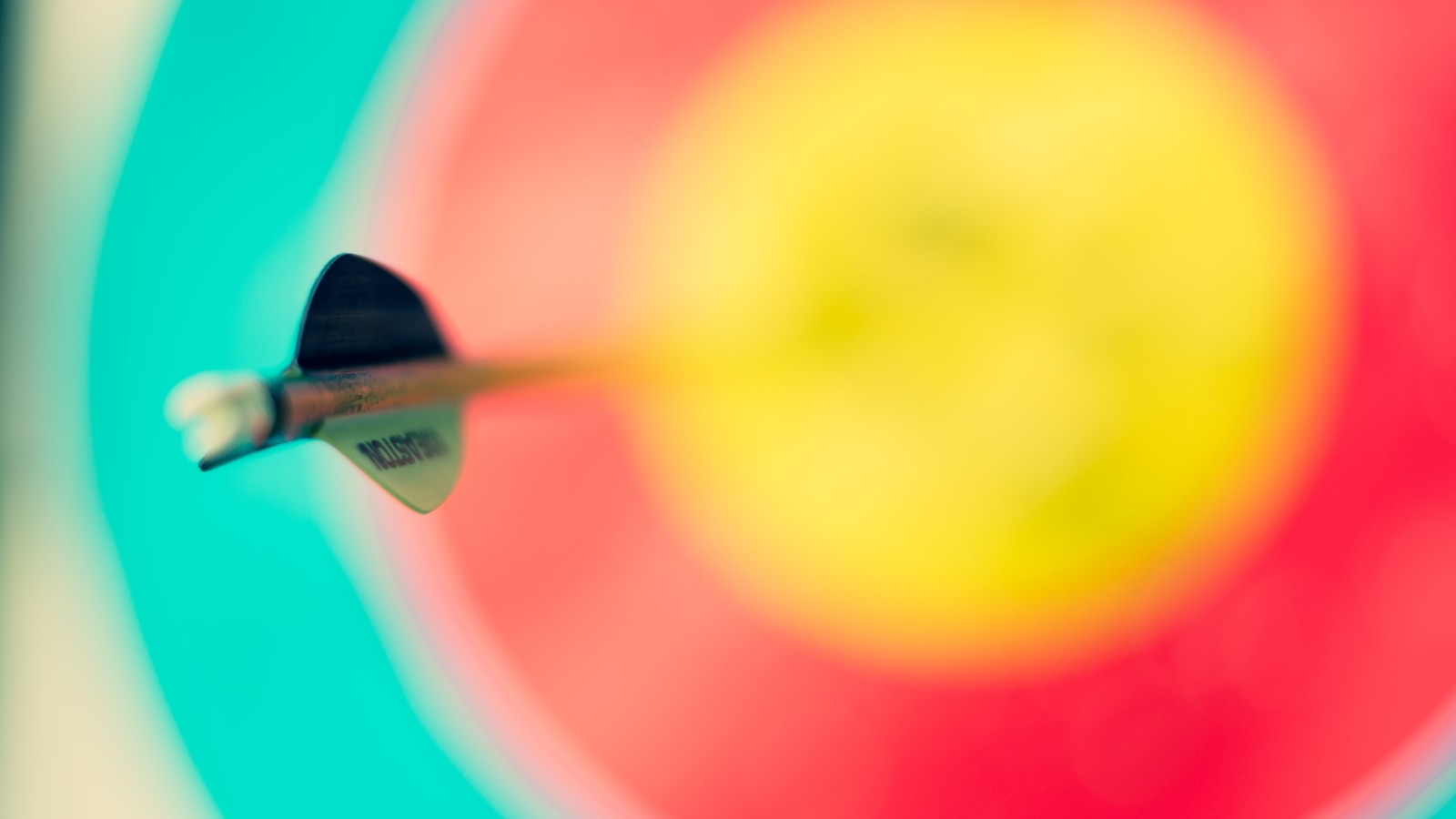Are you throwing stress darts at yourself?
Back in 2014, my mindfulness teacher told me about a Buddhist concept that’s stuck with me since – it was all about how we respond to things that happen to us and the impact our responses and reactions can have on our happiness.
It’s revolutionised how I think when bad things happen and maybe it can help you, too.
To survive as humans, we need pain. Physical pain tells us when we’ve touched something hot, for example, and psychological pain sends us distress signals like grief, fear, guilt, anger and rejection. It’s how we’re built. Pain lets us know when we’ve hurt someone or ourselves, or when someone or something has hurt us.
In Buddhism, these inevitable pains in life are known as ‘first darts’. We can’t do anything about them. As the saying goes, ‘shit happens’.
But there’s a second, more sinister dart – the one we throw at ourselves. It’s how we judge and react to the first dart, and it’s the second dart that creates the suffering we feel. It’s the stories we tell ourselves, and we’re just adding insult to injury.
Pain is inevitable. Suffering is optional.
Haruki Murakami
Let’s take a few everyday examples. You have a dentist appointment and you’re late leaving the house. You’re stuck in traffic, and you’re raging at all the incompetent motorists making you even later, as well as beating yourself up for leaving late. Again. You spiral into self-criticism. “Will I ever learn? Why can I not get myself organised? I’m never going to get my shit together the rate I’m going…” etc etc… You arrive flustered, stressed and annoyed with yourself and everyone else. The second dart has well and truly hit.
Another example – you stub your toe on something left in the hallway. It hurts. You start jumping around, screaming blue murder about the state of the house. Although the pain subsides almost immediately, you continue to fill yourself with rage – and it puts you in a foul mood for the rest of the day. The second dart is working its magic once again.
Whether it’s something as small as stubbing your toe or dealing with a major life event, that second dart – how you respond to the first dart – will determine how much suffering you feel.
So, what to do?
How to stop the suffering of the second dart
This is where mindfulness comes in. It’s about being aware of your emotions, observing them as a friendly external observer.
When you’re angry/hurt/anxious about something, ask yourself whether it’s the first dart (what happened) or the second dart (how you responded) that’s causing these emotions. Recognising the second dart gives you the power of choice. Is beating myself up and getting stressed going to get me to the dentist any sooner? No. So am I going to keep throwing that second dart at myself, or am I going to take a deep breath, respond differently and reduce my suffering?
When I learnt about the second dart in the mindfulness course, I was about to emigrate to Australia. I’d resigned from my job, had secured a brilliant PR role at an agency overlooking Sydney Harbour and was living with friends in London with my belongings in boxes while my new employers arranged my Visa. It was the start of the next chapter of my life and I was buzzing with excitement about my beach flat in Manly, the ferry commute across Sydney harbour, the morning swims and yoga on the beach – I had it all planned.
Then I got an email late one Thursday night – I remember it so clearly to this day – from the CEO of my new employer, telling me they had to withdraw their job offer (and with it, the sponsored Visa that would allow me to live in Australia) as their global HQ in the States had just introduced a recruitment freeze.
I admit, that night, when I read the email, I cried. The wine I’d had probably didn’t help. The next day, I dusted myself off, went into my last day of my job, didn’t tell a soul and composed a friendly, understanding email to the Oz company I’d meant to join. That night, I decided to give myself six months to figure out what to do next and that was it. No more tears, no anger, no self-pity.
As is usually the case, everything turned out exactly how it was meant to. A short while later, I headed back to Leicestershire, where I grew up, fell in love and the rest is history. It was only a couple of years later when a close friend commented on how impressed they’d been with the way I’d handled the whole thing and I realised he was right. ‘The second dart,’ I thought.
Of course, the second dart still rears its ugly head but I have a very different response process these days, thanks to that Buddhist metaphor my mindfulness teacher told me.
Even when it’s someone else that’s caused the first dart, the second dart is like drinking poison and waiting for the other person to die.
When you throw the second dart, you’re only hurting yourself.
So next time you’re suffering, remember the second dart. There are enough darts in life, you don’t need to add any more.


